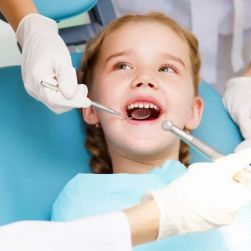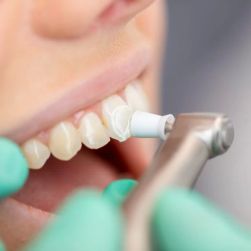As people enter their later years, many begin to notice changes in their oral health that they hadn't experienced in their younger days. One such change is the onset of tooth sensitivity or even pain, which can come as an unexpected surprise for many older adults. It's important to understand why these issues arise and what can be done to manage them. In this article, we will explore whether it is normal for older adults to experience tooth sensitivity or pain, the common causes behind these issues, and practical approaches to alleviate them. We'll also offer insights specific to the experiences of older adults in the United States, providing a comprehensive guide to maintaining oral health in your senior years.
The Physiology of Aging Teeth
As we age, the physiology of our teeth and gums naturally changes. The outer layer of teeth, known as enamel, can wear down over time, exposing the more sensitive dentin underneath. This thinning can lead to increased sensitivity, particularly to hot, cold, or sweet stimuli. Additionally, receding gums, which are common among older adults, can expose the tooth roots, also contributing to sensitivity and pain. While these changes are a normal part of aging, they can cause discomfort and impact quality of life if not properly addressed.
Common Causes of Tooth Sensitivity and Pain
Several factors can contribute to tooth sensitivity and pain in older adults. One major factor is gum disease, which affects a significant portion of the senior population. Gum disease can cause gums to recede, leading to exposed tooth roots. Another factor is tooth decay, which can become more prevalent with age due to challenges in maintaining oral hygiene. Additionally, wear and tear from years of biting and chewing can lead to cracked or fractured teeth. Understanding these underlying causes is crucial for effective management and prevention.
The Role of Dental Health in Overall Well-being
Oral health is an integral component of overall health, particularly for older adults. Untreated dental issues can lead to more serious health problems, such as infections, difficulty eating, and even cardiovascular disease. Maintaining good oral health can enhance an older adult’s quality of life, ensuring they can continue to enjoy a varied diet and social engagement without discomfort. Moreover, regular visits to a dentist, such as those recommended by Dentistry Toothtruth, can help in early detection and treatment of potential issues.
Effective Strategies for Managing Tooth Sensitivity
There are multiple strategies that older adults can adopt to manage tooth sensitivity effectively. Using toothpaste specifically designed for sensitive teeth can provide quick relief. Additionally, maintaining a consistent oral hygiene routine, including gentle brushing and flossing, can prevent further enamel erosion and gum recession. Regular dental check-ups are also critical, as dentists can recommend treatments such as fluoride varnishes or desensitizing agents that provide long-term protection and relief from sensitivity.
Conclusion: Proactive Care and Professional Guidance
In conclusion, while experiencing tooth sensitivity or pain is common in older adults, it shouldn't be dismissed as a mere consequence of aging. By understanding the causes and implementing practical strategies, seniors can significantly reduce discomfort and maintain a healthy mouth. We encourage older adults to take proactive steps in their oral health care by scheduling regular dental check-ups and discussing any concerns with their dentist. By doing so, they can ensure that their later years are not only comfortable but filled with healthy smiles.






